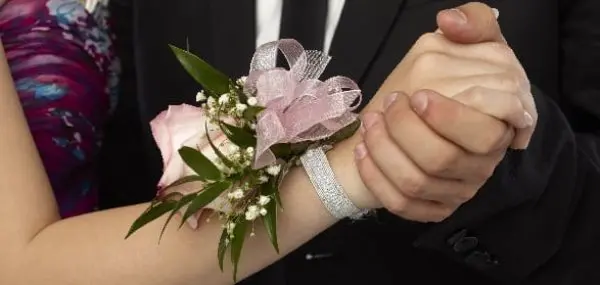February is National Teen Dating Violence Awareness Month. If you’re the parent of a middle schooler, your reaction may be similar to my initial reaction. “Thank God I don’t have to worry about that.”
In my work with middle schoolers and their parents, I’ve found that most kids and adults don’t believe dating violence is an issue for kids this young. For many, the term dating violence brings to mind Rhianna and Chris Brown. And that seems far from our middle school reality.
It’s easy to think that your smart, educated, and beloved middle school children would never find themselves in that situation. But the reality of dating violence is that it doesn’t begin the moment someone hits or gets hit.
I’ve seen lots of kids get involved in toxic relationships in middle school. This doesn’t absolutely lead to being in abusive relationships in high school. But it does open the door for that possibility when they’re used to having their boundaries crossed without speaking up.
Middle school is the perfect time to lay the groundwork for self-respect.
Self-respect can inoculate teens from this dangerous situation later in high school.
3 Steps to Healthy Relationships:
1. Recognize power imbalances
Whether your middle schooler is “dating” or not (and dating, by the way, might involve little more than texting and adding the name of your girlfriend/boyfriend to your Instagram bio), now is a good time to begin talking about abuse of power. Even if dating isn’t anywhere near your kid’s radar, he or she will have already experienced power struggles in friendships. The middle schoolers I work with often confide in me what it feels like when friends tell them who they can hang out with, what they can like and where they can go. It leaves them feeling powerless and dependent. Adults can use middle school friendships to open a conversation about abuse of power.
2. People who make you feel bad aren’t your friends
In my experience, most middle schoolers don’t know what to do when a friend tries to control them. And so they often just let it happen. Girls in my Athena’s Path leadership camp practice diagnosing healthy vs. unhealthy friendships. At the start of this camp lesson, I ask the girls, “How many of you are in a friendship with someone who makes you feel bad about yourself more than 50% of the time?” and, not surprisingly, almost every hand goes up. Then they create “exit strategies” to leave unhealthy friendships without drama.
3. Stand up for yourself
As parents, we need to teach our kids how to disagree when they don’t like what’s happening to them or someone around them. Someone who learns to voice opposing opinions is less likely to ignore her gut when it tells her something’s wrong. Encourage your middle schooler to debate issues with you and model respectful conviction. Say things like, “It’s alright that we have different opinions on this. I respect your point of view and I’m glad you can respect mine. We both feel strongly about this.” This is a great way to build the foundation for mutual respect before teen relationships start.
In my own house, I work hard to teach my two middle school children to speak up for themselves. I consider this a big part of becoming a healthy adult. I’ve found having rich debates at dinner or playing games that encourage advocating for your choices (Apples to Apples or Say Anything, for example) are fun ways to help my middle school kids find their voices. I also insist that they occasionally do adult-type work. Things like scheduling appointments, borrowing things from neighbors and working odd jobs outside of our house to raise money for things they want. The sheepish, “Can you just ask for me?” does not fly here because I want my kids to know that their voices, though young, can still have authority.
So, as you’re sharing a plate of pancakes with your kids this National Teen Dating Violence Awareness Month, I hope you’ll start the conversations, games and habits that will guide them toward confidence and self-respect and then great relationships down the road.




